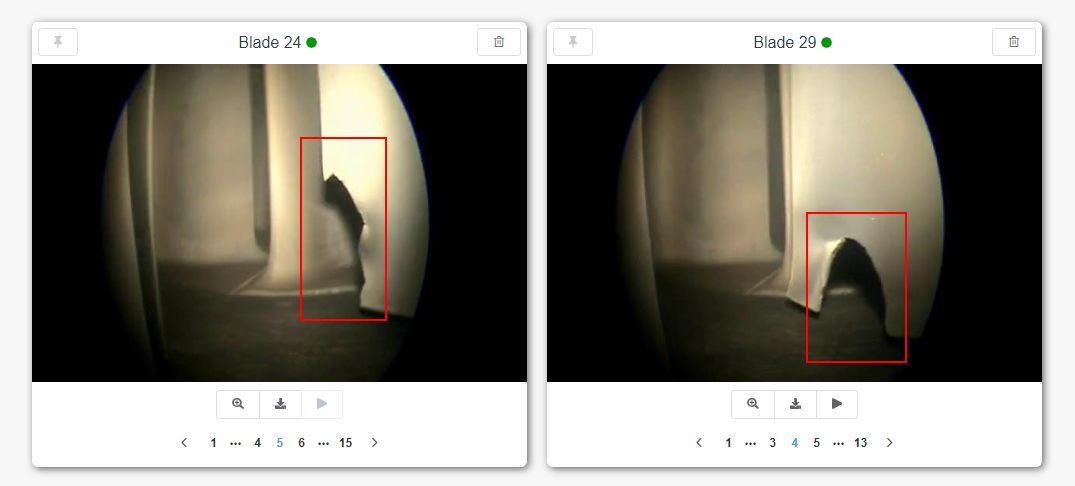
Dutch startup Aiir Innovations is adapting its automated borescope inspection products to meet customer needs during the COVID-19 pandemic. It is working to expand its offerings so customers can access its artificial intelligence (AI) insights about borescope inspections online in light of travel restrictions and social distancing.
Aiir Innovations’ technology, which began as a student project for KLM and grew into a startup in 2016, is designed to reduce the time it takes to perform and analyze borescope inspections of jet engines. In its case studies with KLM, KLM Engineering & Maintenance and MTU Maintenance, it says its AI software has proven to reduce inspection times by approximately four hours and detect 150% more relevant findings than human inspectors.
The technology, says Aiir Innovations CEO Bart Vredebregt, uses AI techniques “to make life easier” and optimize workflows in jet engine borescope inspections. It currently detects defects, counts the number of blades that have been observed and performs speed analysis on blades. The technology is split into two products: Aiir Assist to support borescope inspectors and speed up the process, and Aiir Review to analyze borescope inspections performed by third parties and ensure all defects have been reported. It says Aiir Review reduces the time needed to review borescope footage by up to 50%.

Due to challenges encountered during the pandemic, Vredebregt says Aiir Innovations decided to take the technology to the cloud. “A lot of companies right now are trying to figure out how to digitalize their operations, and for MTU specifically we work a lot with their leasing branch, so we moved all the AI functionality to an online environment,” he says. “For MTU we actually have a complete web-based portal where they upload videos they get from their inspection companies and then they get the feedback in several minutes, usually, so that they can check the so-called highlights of the borescope video.”
Vredebregt says he foresees demand for web-based services to continue even post-pandemic, so Aiir Innovations believes now is the time to begin relationships with customers and get them used to the online experience. “The Aiir Review online portal is now finally reaching a level of maturity that we’re ready to go out there in the market,” he says, noting that Aiir Innovations is seeking potential customers to test the capability from anywhere in the world using their own inspection data.
Moving forward, Vredebregt says the company also hopes to tackle regulatory challenges that have prevented it from being able to use AI to perform measurements or make judgments about findings. “In theory, if the AI becomes too good at its job, you will have inspectors that will just blindly trust the results of the AI,” he says. “For us, then, the challenge is how to avoid issues like that from happening. I don’t think that the AI or the product component now is the challenge—it’s regulations and human factors.”
